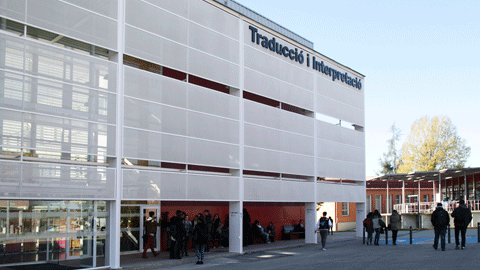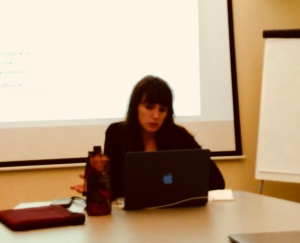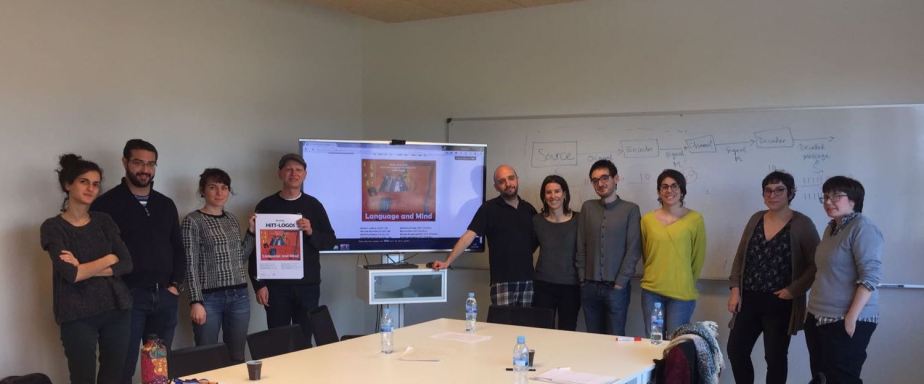Last week Zoltan participated in the Sinn und Bedeutung 23, which took place in the Universitat Autònoma de Barcelona in September 5-7, 2018. Sinn und Bedeutung is one of the most important conferences on formal semantics in the world and was particularly competitive this year.

In addition to chairing one session, Zoltan presented the talk called “Not all state nominalizations are mass nouns”, in which he argues against the standard analysis according to which there is a mapping from atelicity onto the mass domain. On the basis of certain specific data in Spanish that have gone unnoticed in the literature so far, he claims that the requirement for predicative bases to form mass nominalizations is that they must be gradable rather than atelic.
“It was a pleasure to meet again my colleagues and friends of the Universitat Autònoma de Barcelona. This type of conferences promote the linguistic debate at a high level in an ideal atmosphere in which not only professors, but also students, feel comfortable enough to share their ideas. Special thanks to the organizers for making that possible”.





 Amid philosophy talks, Katie gave a linguistic talk about the polysemy of posture verbs. Marta discussed the ontology of predicates like understand and see/watch, and how lexical aspect plays a big role there. Marina, another local PhD student, presented a proposal on how to formalise copredication constructions, with a modification on a previous proposal of Pustojevsky. The friends from Barcelona talked about a range of topics, from information theory and signalling theory, to personal identity and experience vs. bodily ownership. Very interesting to hear about topics one might not usually (think to) think about. 🙂
Amid philosophy talks, Katie gave a linguistic talk about the polysemy of posture verbs. Marta discussed the ontology of predicates like understand and see/watch, and how lexical aspect plays a big role there. Marina, another local PhD student, presented a proposal on how to formalise copredication constructions, with a modification on a previous proposal of Pustojevsky. The friends from Barcelona talked about a range of topics, from information theory and signalling theory, to personal identity and experience vs. bodily ownership. Very interesting to hear about topics one might not usually (think to) think about. 🙂






